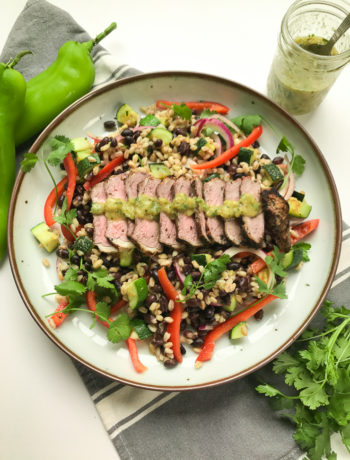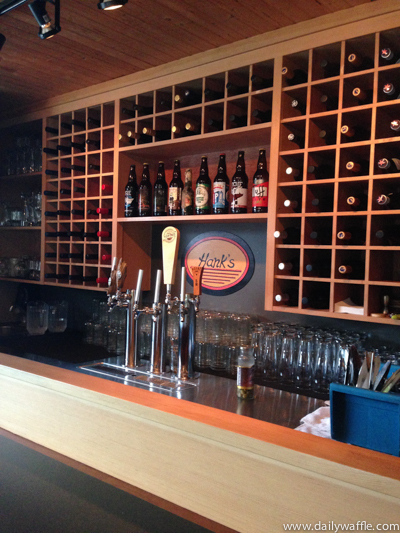Pecorino Toscano, a sheep’s milk cheese, is produced as the name suggests, in Tuscany. But it’s not just where it’s made. With Pecorino Toscano DOP, all elements must come from the region as well. The DOP mark confirms the milk and production process meet the consortium’s standards and help ensure a unique, high-quality product.
Cheesemaking has a long history in Tuscany, but the creation of the consortium dates back to 1985. Today it comprises 900 farmers (about 200 are members of the consortium), 17 dairies, two cheese ripeners, and a packaging company.
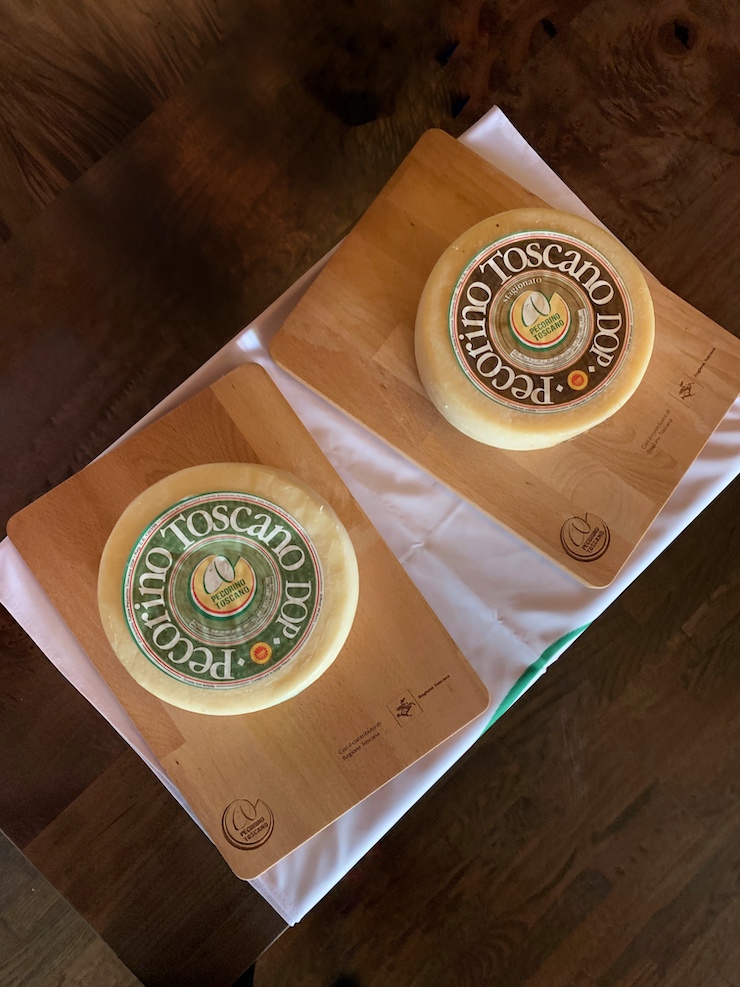
The fresh cheese (green label) is aged for a minimum of 20 days, but is typically extended to 45-60 days. It’s a semi-soft cheese that retains sweet, milky, buttery qualities. The aged version (copper label) matures for at least 120 days. The region exports roughly 20 percent of the Pecorino Toscano DOP cheese produced annually.
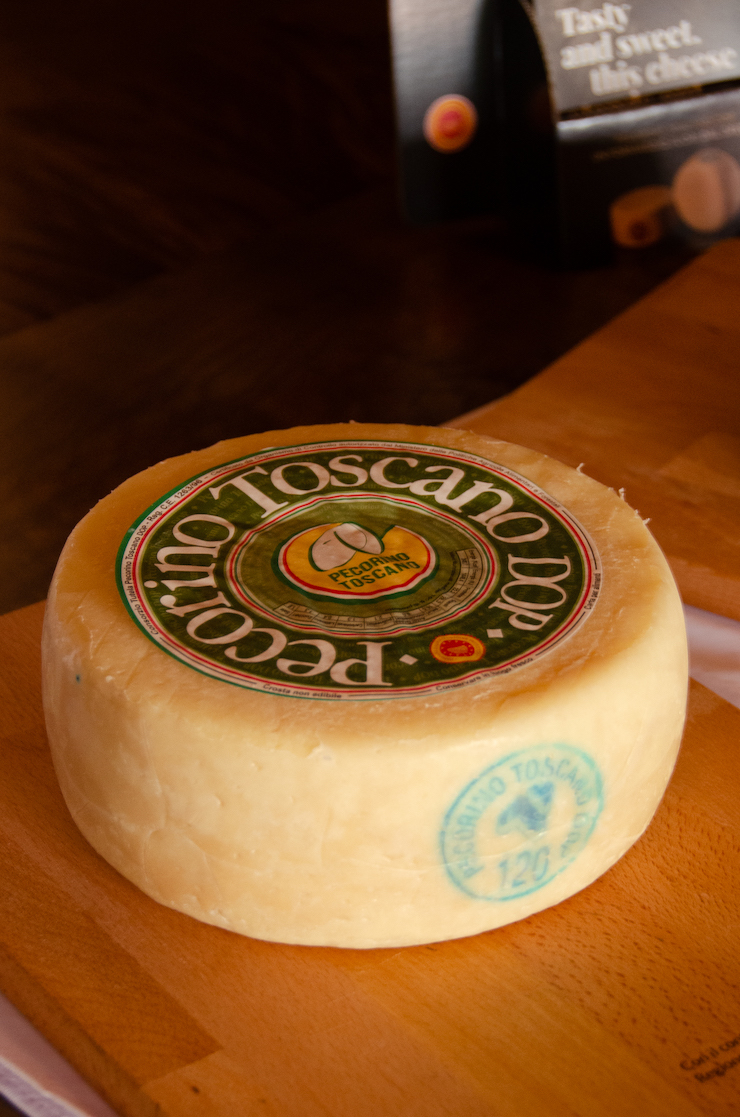
Each wheel is marked with the number of the producing dairy.
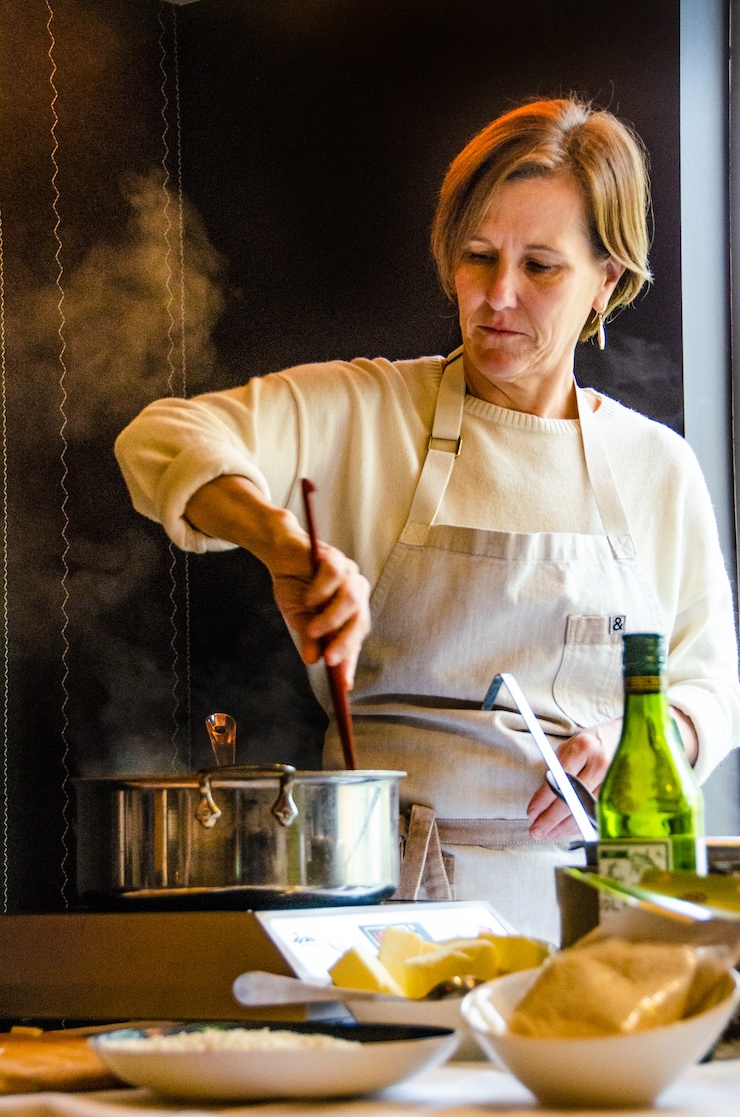
Cafe Juanita Executive Chef/Owner Holly Smith stirs Pecorino risotto mantecato.
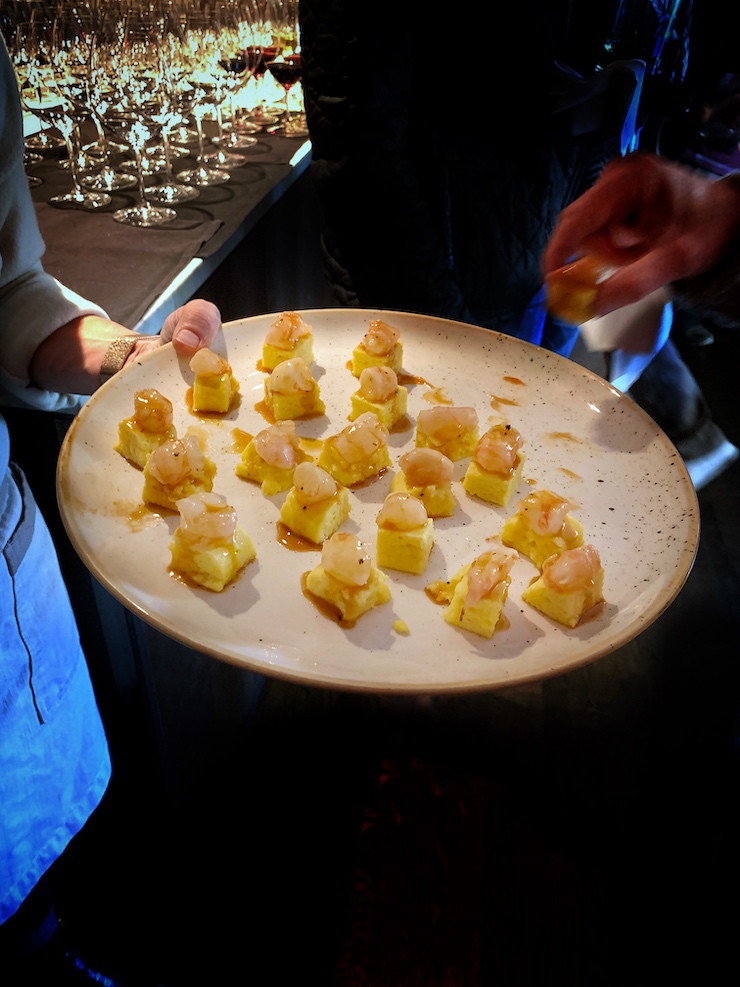
Rafanata with Alaskan Spot Prawn and Black Truffle.
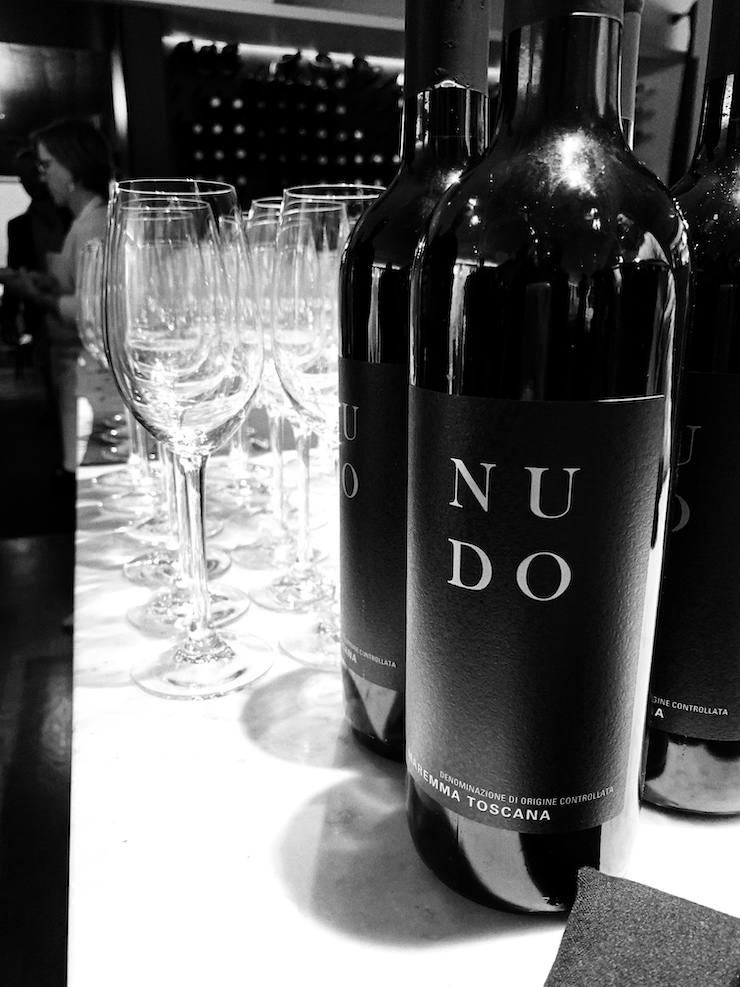
Nudo wines from Tuscany.
I didn’t plan to make a video from the event, so the radicchio salad demo is shot vertically. But I thought I’d do a little dabbling with iMovie and voilà!
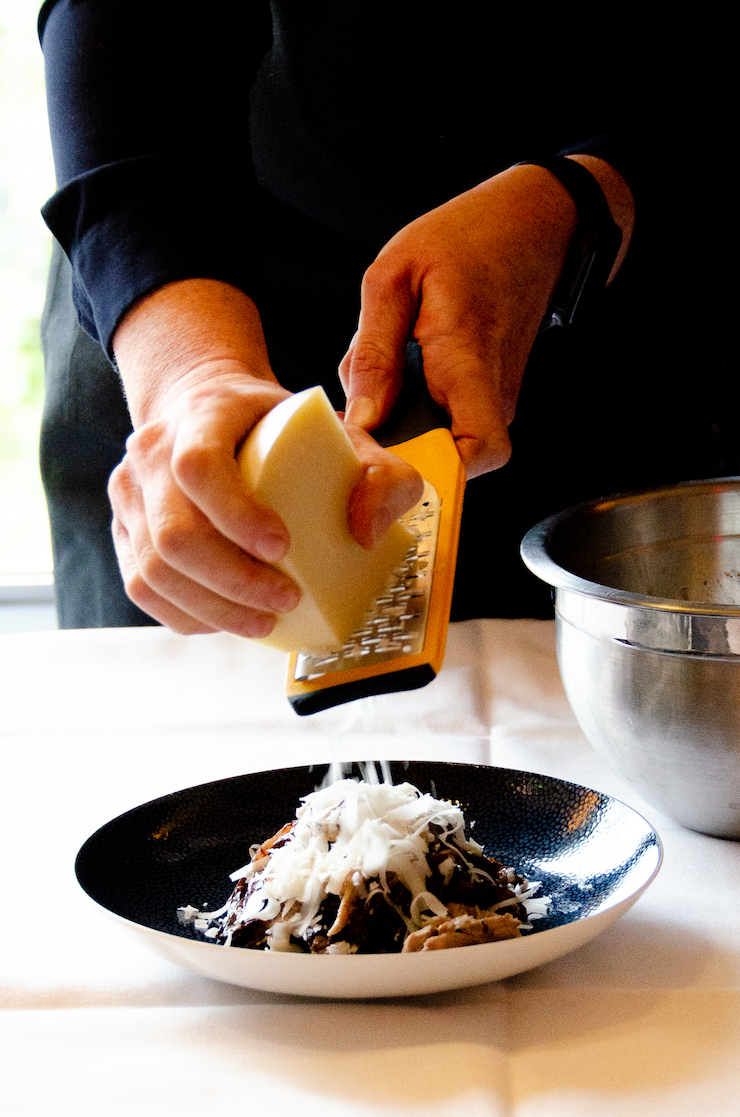
Cafe Juanita Chef de Cuisine Lauren Thompson grates Pecorino over a grilled radicchio salad with poached rabbit and pine nuts.
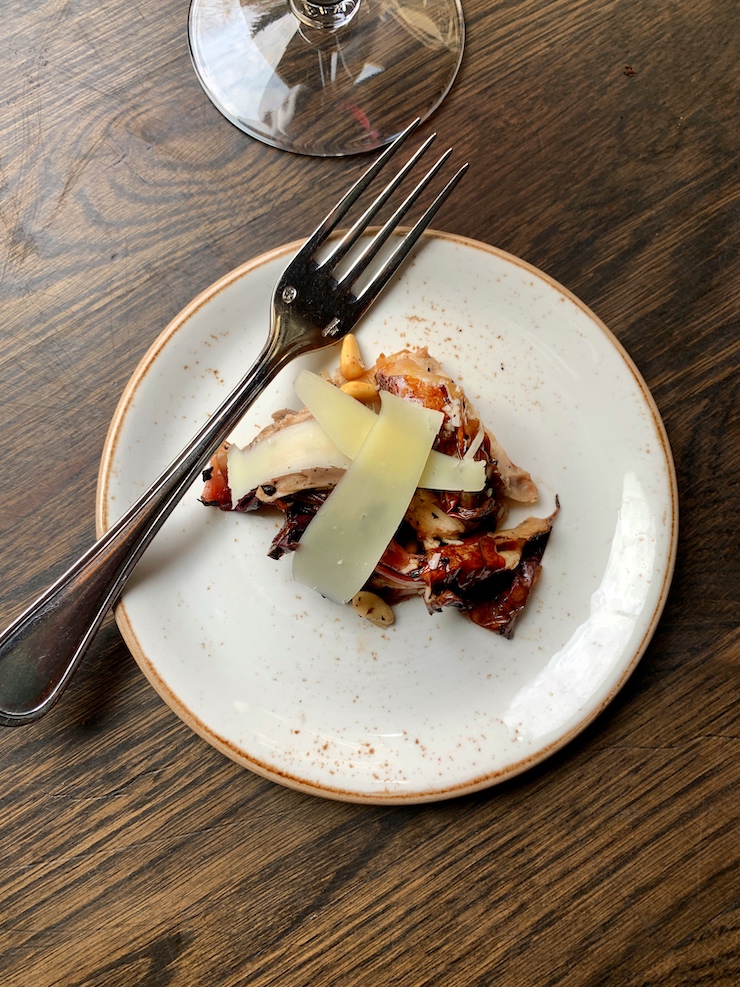
The tasting sample of the grilled radicchio salad.
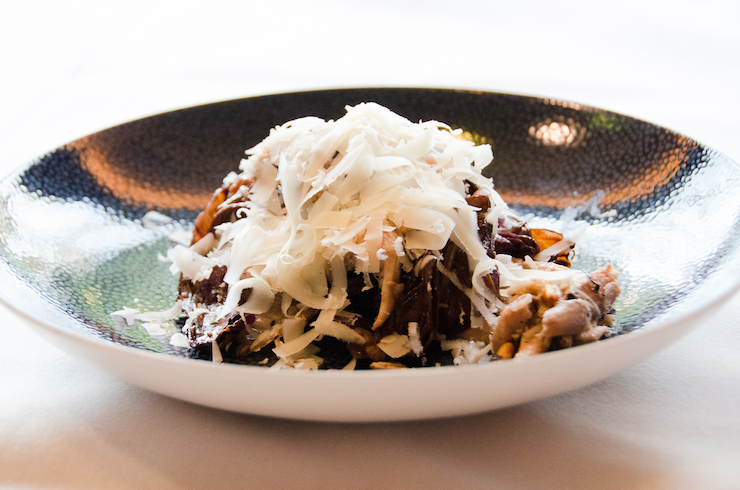
And yep, one more of that gorgeous radicchio salad.
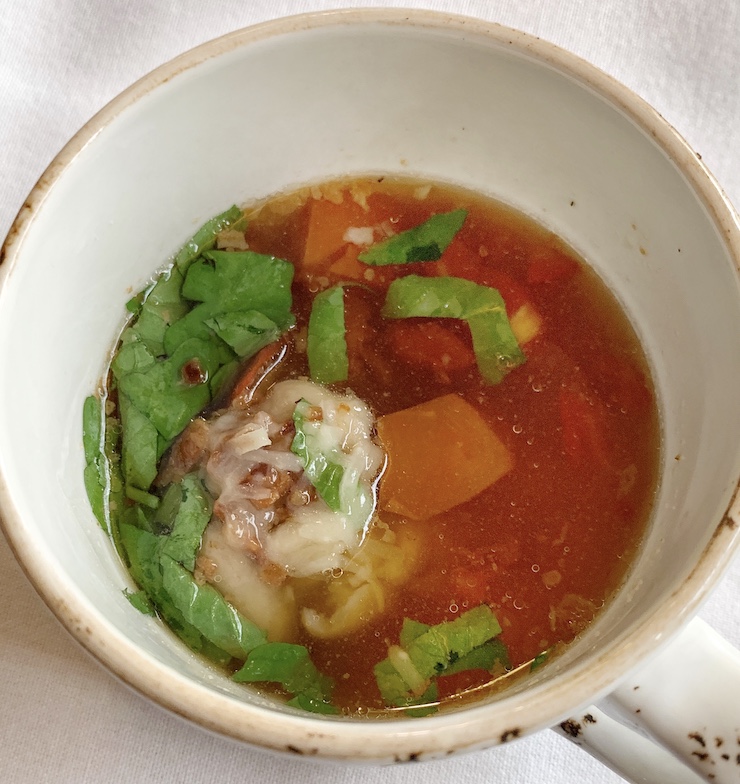
Pecorino brodo with pancetta, white beans, tomato and watercress. Chef Thompson talked about she’s a proponent of reducing food waste, and using your cheese rinds in broth or stock is one great way to get more flavor and reduce that waste.
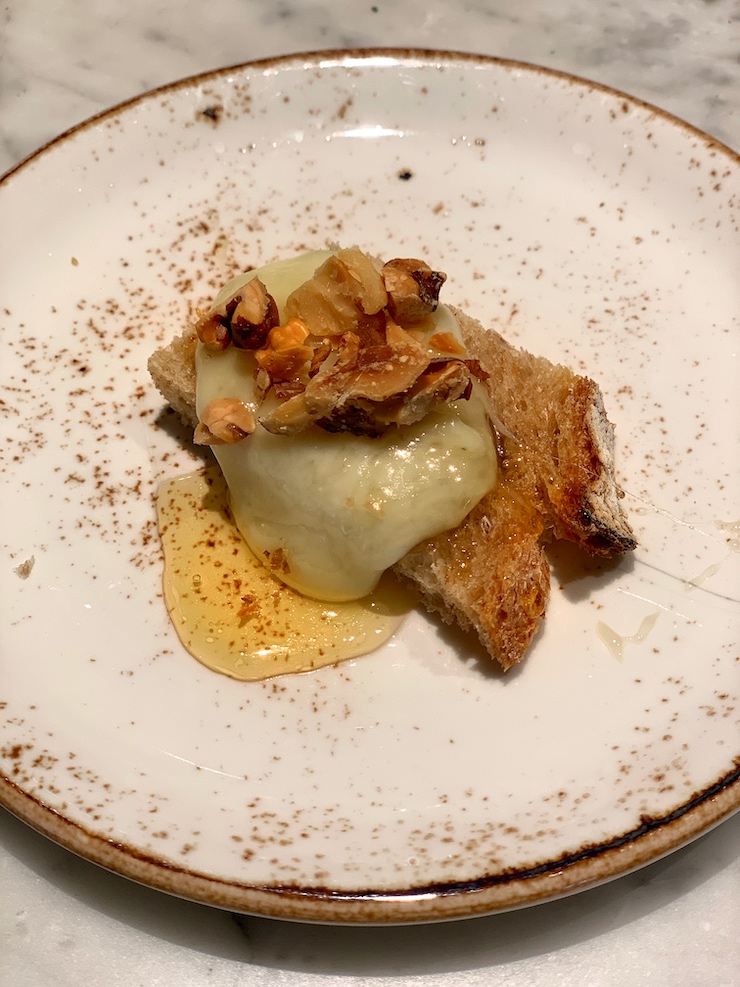
Baked pecorino with honey and walnuts on hearth bread. I mean, who doesn’t love cheesy toast?
Thanks to event hosts Italy-America Chamber of Commerce West with Pecorino Toscano PDO, Cafe Juanita and Ritrovo Italian Regional Foods for the invite.



